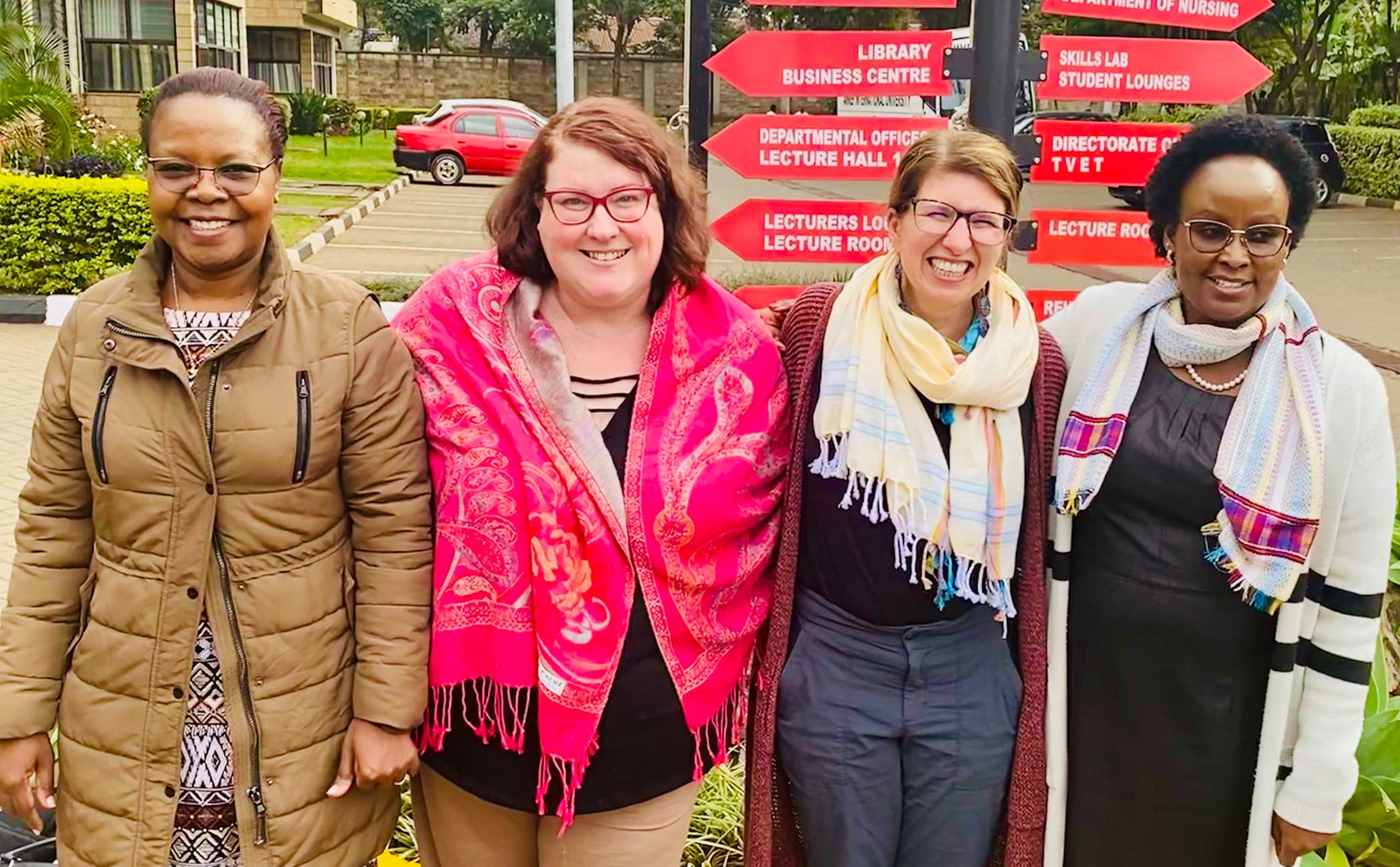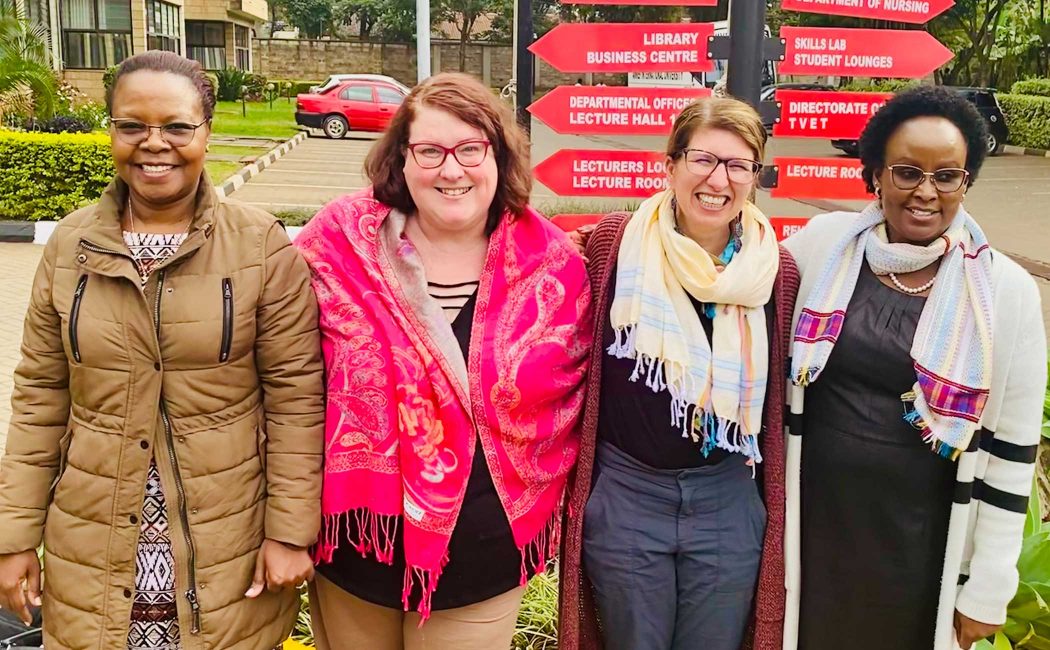
In recent years, there has been an increase in global initiatives aimed at providing mental health support in low- and middle-income countries for those affected by disaster, conflict and forced migration.
However, older refugees and refugees with disabilities have received less attention in humanitarian research and often face barriers to accessing wellness-promoting interventions.
Julie Tippens, associate professor of child, youth and family studies, and Angela Palmer-Wackerly, associate professor of health communication, are participating in a collaborative, international project designed to address this critical gap among marginalized refugees with the creation and evaluation of an interactive research toolkit — “HESHIMA: A Guide to Collaborative and Inclusive Health Research in Humanitarian Settings.”
“Heshima” is Kiswahili for respect or dignity. For this project, the HESHIMA acronym stands for “Honoring Experiences and Shared Humanity in Mobilizing for Action.”
Funded by a grant from the ELRHA (Enhanced Learning & Research for Humanitarian Assist) Humanitarian Innovation Fund, HESHIMA is a collaboration among researchers, humanitarian and human rights personnel, and refugee stakeholders. Partners include the University of Nebraska–Lincoln, Amref Health Africa, Amref International University, the Albinism Society of Kenya, HelpAge International-Kenya and an advisory board consisting of older refugees and refugees with disabilities.
Tippens and Palmer-Wackerly will collaborate with the advisory board and other partners to co-produce the toolkit, which will include guidance on participatory research procedures, such as research ethics, partnership development and tools for recruitment, data collection and dissemination.
“It’s been an incredible amount of work and coordination from all partners, and we’re all learning how to effectively work together by recognizing one another’s strengths and perspectives,” Palmer-Wackerly said.
We are trying to understand their perspectives in identifying primary stressors — what mental health means for older refugees, or refugees with disabilities, to be mentally healthy, what they prefer as supports and what resources will help.”
— Julie Tippens, principal investigator
Data will be collected from refugees living in Nairobi, Kenya. Refugees living in cities and towns outside of refugee camps lack access to the typical humanitarian supports provided in a camp, such as food, water, housing, health care and other necessities. Information about what matters most to refugee partners and participants will be used to create the research toolkit and to enhance humanitarian responses in urban settings.
Researchers aim to complete the toolkit by the end of 2023, then field test it in Nairobi, Kenya, in spring 2024.
“We want to develop tools that highlight strengths and focus on what inclusion and participation means to refugees themselves,” Tippens said. “We are trying to understand their perspectives in identifying primary stressors — what mental health means for older refugees, or refugees with disabilities, to be mentally healthy, what they prefer as supports and what resources will help.”
It is crucial, she said, to be able to conduct research in Kenya and other low- and middle-income countries, where most of the world’s refugees live.
“Only 1% of refugees are ever actually resettled to the U.S. or Europe or elsewhere, but most research comes from studies with those resettled populations,” Tippens said. “So being able to gather evidence from these locations is so important.”
Tippens’ past projects have included several participatory research and community engagement studies, many of which focused on older refugees. Palmer-Wackerly has collaborated with research partners to study immigrant and refugee health in rural Nebraska.
“It feels like everything I’ve done before has been leading up to this project,” she said. “This is a nice culmination of earlier projects in which I’ve worked with the same populations, and it’s an opportunity to strengthen our partnerships with the other organizations.”
Using this participatory approach with refugees in their own communities, and using their direct input to co-develop project, is also something Tippens is eager to do.
“It is exciting to launch a participatory action research project across international borders,” she said. “It’s something I’ve wanted to do for a long time, but I and our research partners weren’t necessarily ready for that challenge. Now after working together for several years, we’re ready.”
Learn more about this project in the CYFS Research Network. This project aligns with the UNL Grand Challenge of health equity.
